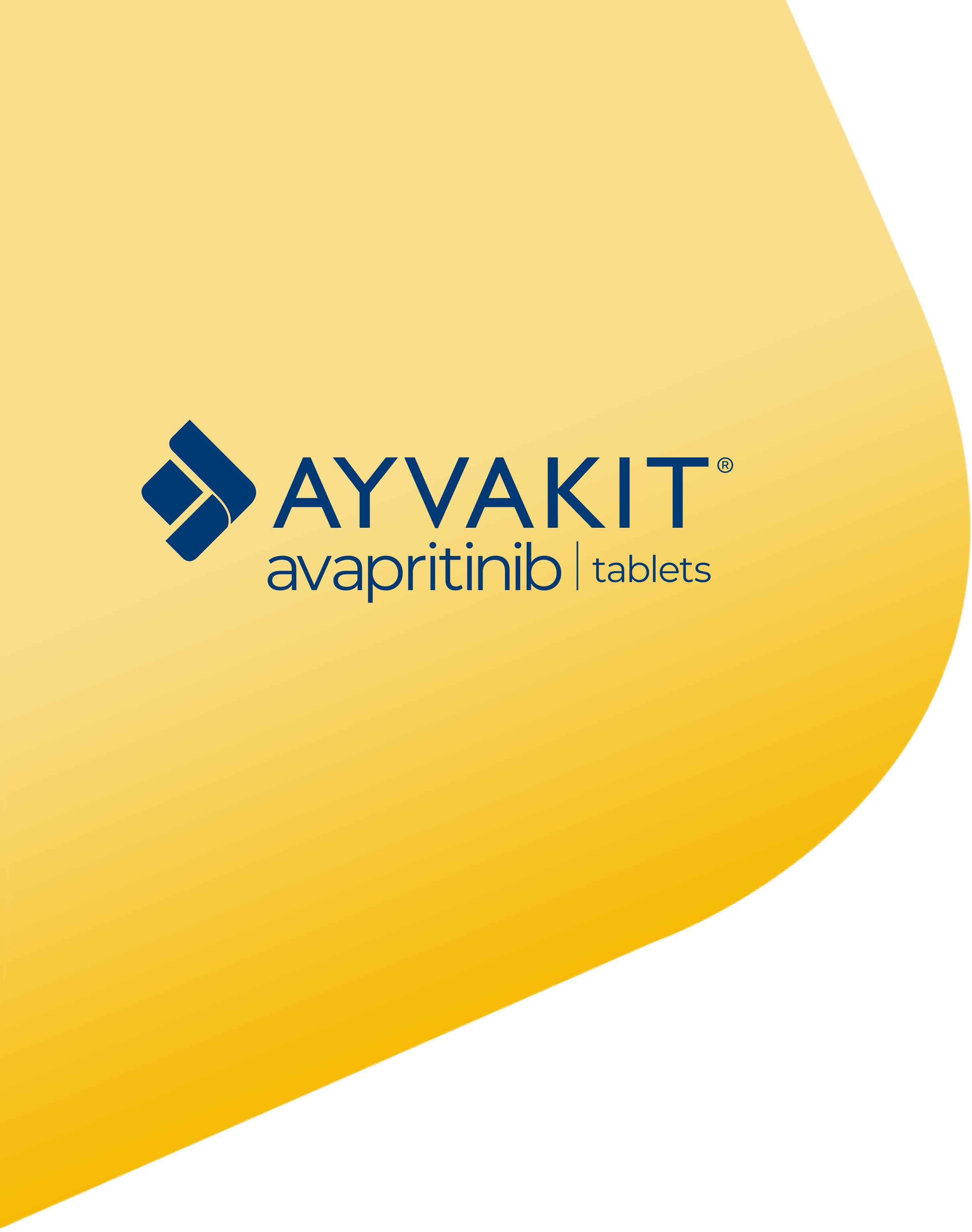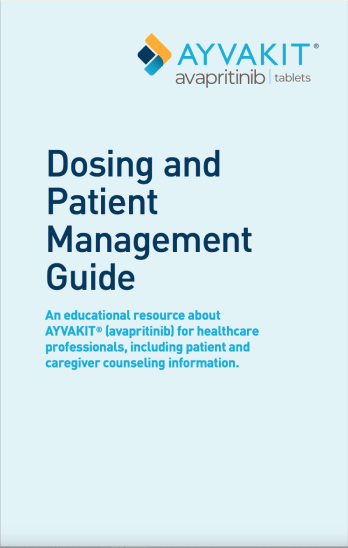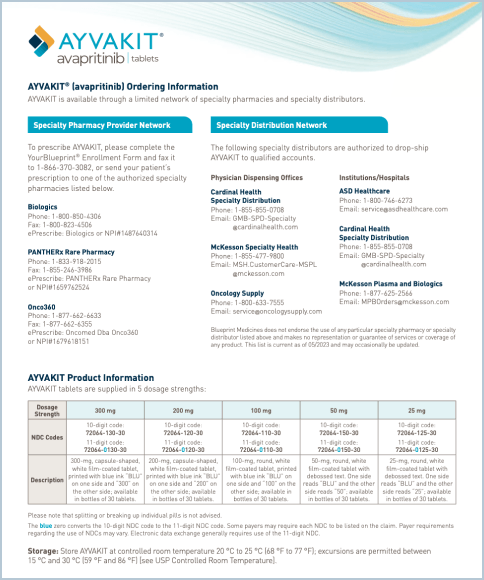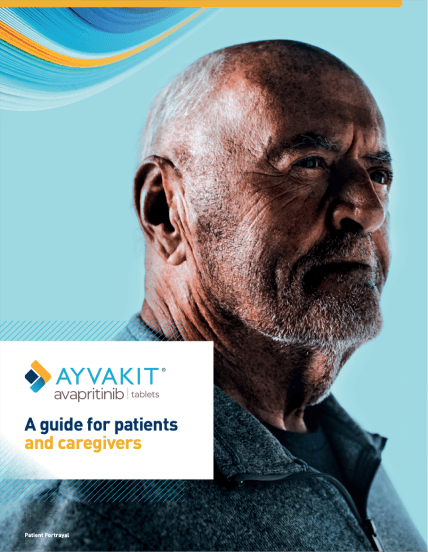SELECT A CONDITION

FDA Approved for GIST
AYVAKIT® (avapritinib): the first tyrosine kinase inhibitor (TKI) for adults with a gastrointestinal stromal tumor (GIST) who have a PDGFRA exon 18 mutation.1
AYVAKIT selectively targets KIT and PDGFRA mutant kinases, the primary drivers of GIST.1,2
Get more information to see if AYVAKIT is right for your patients.
What is AYVAKIT?
AYVAKIT is a kinase inhibitor indicated for the treatment of adults with unresectable or metastatic GIST harboring a platelet-derived growth factor receptor alpha (PDGFRA) exon 18 mutation, including PDGFRA D842V mutations.1
Lines of TKI Treatment in GIST
Resectable GIST*
therapy
therapy
*AYVAKIT is not approved for patients with resectable GIST.
Unresectable or
Metastatic GIST


APPROVED FOR USE IN PATIENTS WITH PDGFRA EXON 18 MUTANT GIST, INCLUDING PATIENTS WITH THE PDGFRA D842V MUTATION

Individual results may vary.
AYVAKIT Resources
The following downloadable materials are here to help provide education for you and your patients on AYVAKIT.
FOR YOUR PATIENTS/
CAREGIVERS
These materials are intended for digital use only. If you decide to print them, please be sure to print and attach a copy of the full Prescribing Information as well.

YourBlueprint® provides dedicated, personalized support to help your patients from Day 1. Blueprint Medicines offers a series of programs to support patient access, including:
- Co-pay Support
- Patient Assistance Program
- Quick Start
- Prior Authorization Support
- Coverage Interruption
Enroll your patients at time of prescription to support the patient experience and access to programs.

Connect with Blueprint Medicines
For more information about AYVAKIT and to speak to a representative from Blueprint Medicines, please complete this form:
All fields required unless otherwise noted.




